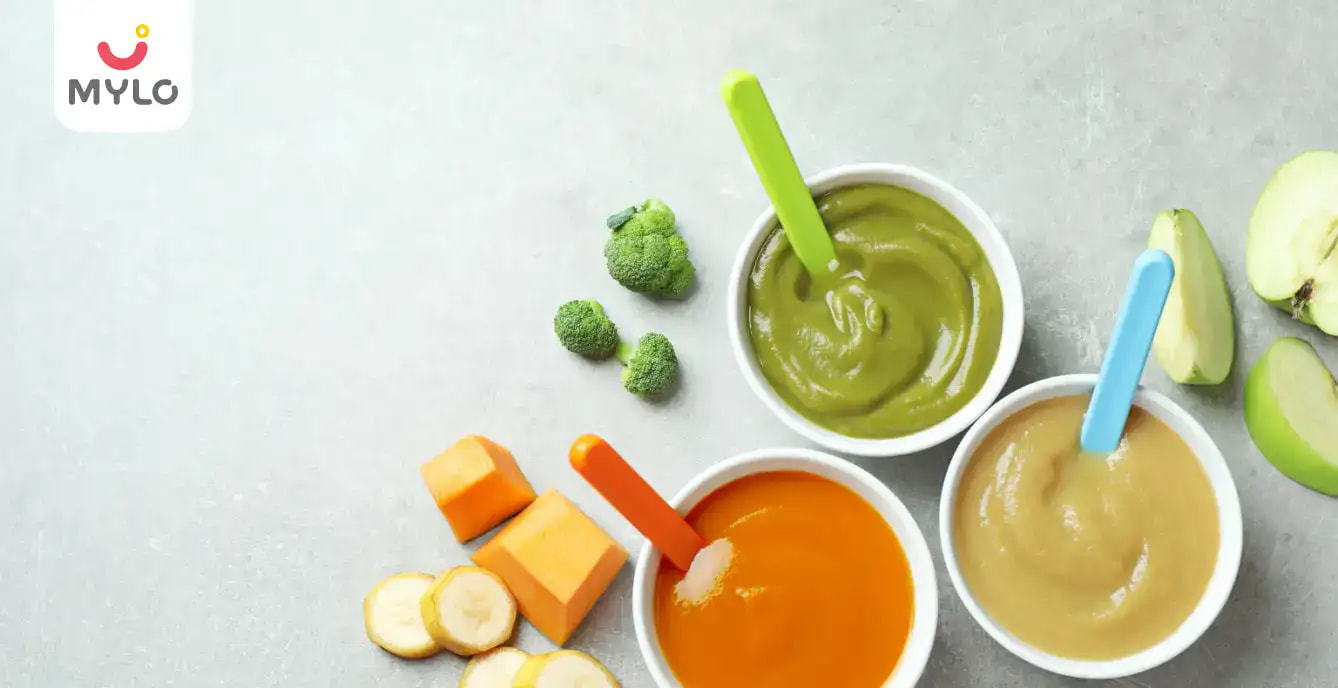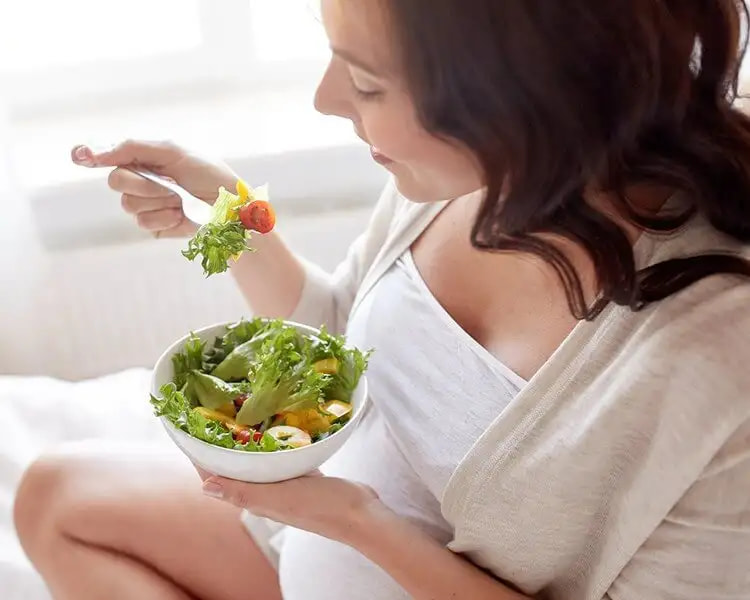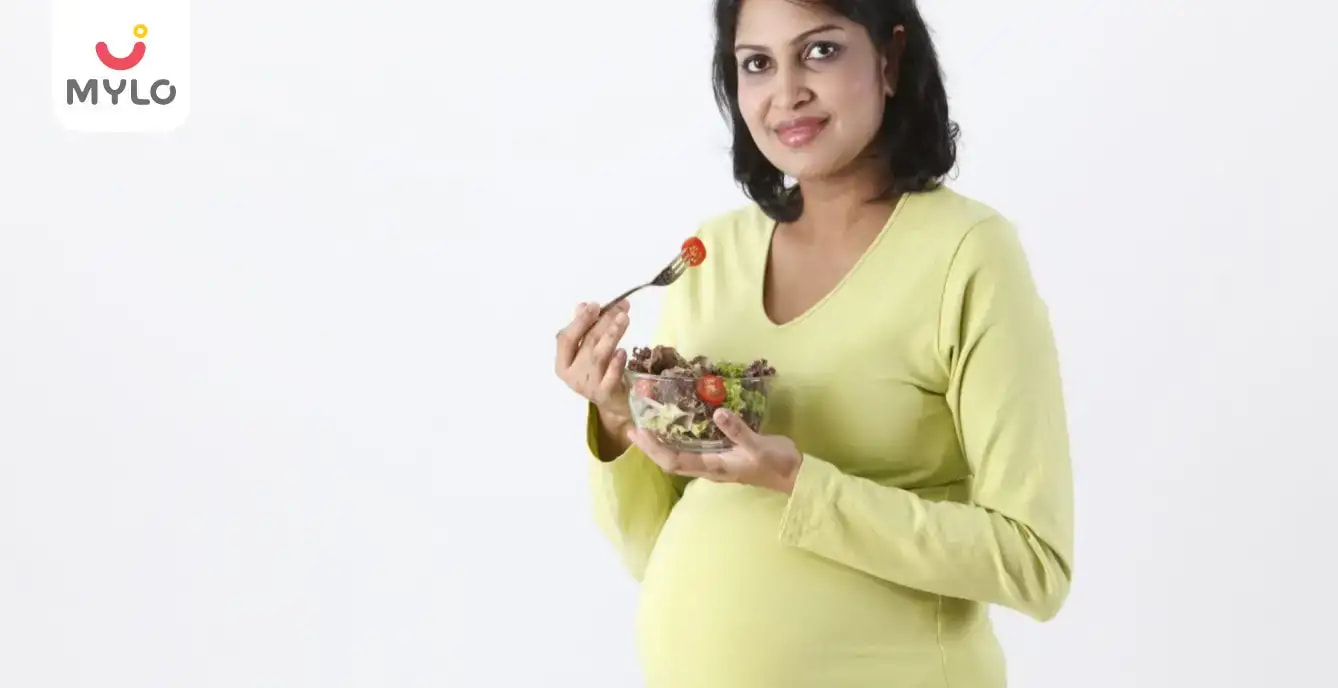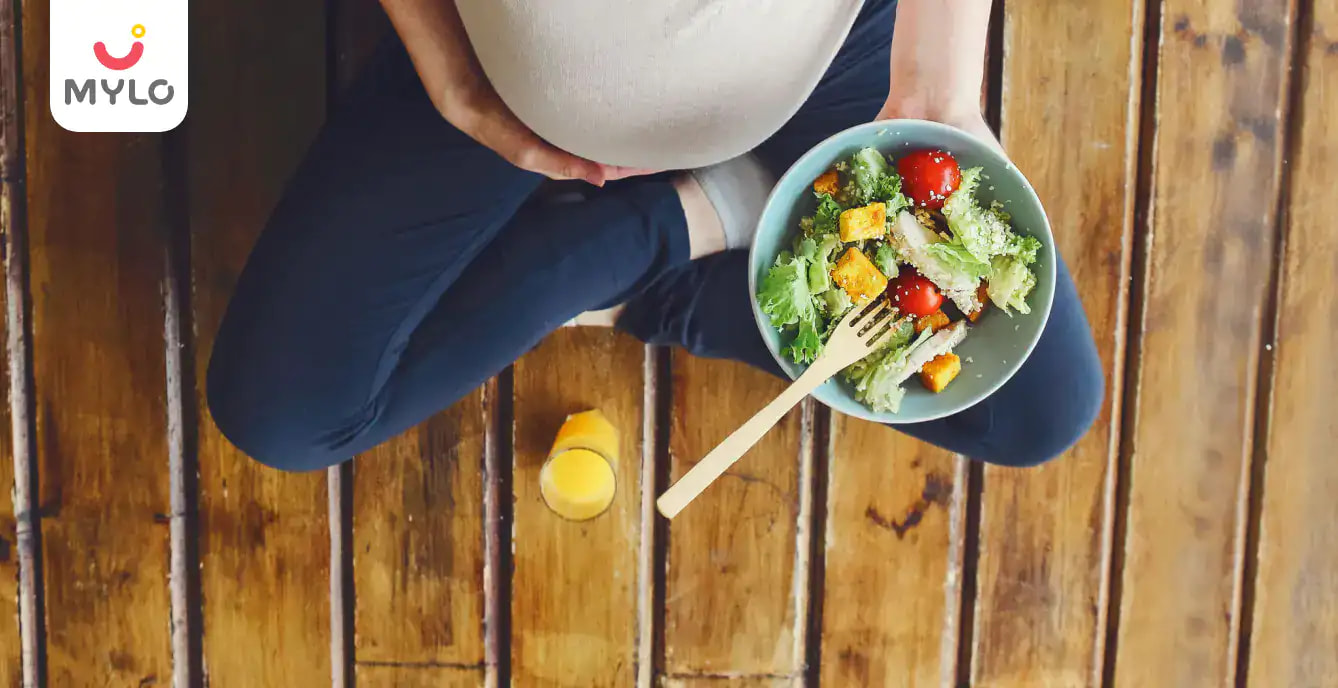Home

The Ultimate Guide to Baby Brain Development Food During Pregnancy
In this Article
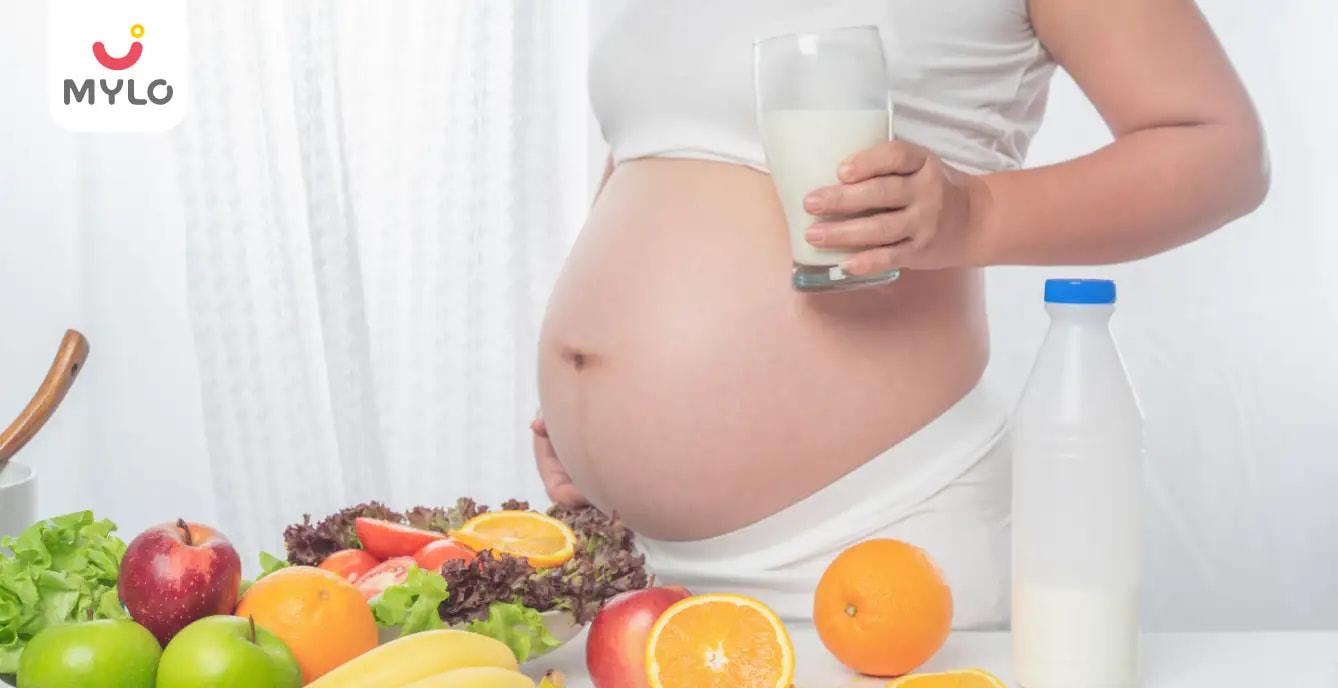
The Ultimate Guide to Baby Brain Development Food During Pregnancy
Updated on 22 November 2023
Every expecting mother yearns to provide the best possible start for their little one, fostering not just growth but also laying the foundation for a bright and thriving mind. Understanding the science behind baby brain development and consuming baby brain development food during pregnancy can help shape the cognitive future of your unborn child.
In this article, we will explore how to improve baby brain development during pregnancy through diet and nutrition and understand the science behind nutrition and your baby's brain development.
In which month baby brain development during pregnancy starts?
The development of the baby's brain begins very early in pregnancy, even before many women may be aware that they are pregnant. The neural tube, which eventually becomes the brain and spinal cord, forms within the first few weeks after conception. By the end of the first month of pregnancy, the neural tube begins to close.
Critical stages of brain development occur during the first trimester, which encompasses the first three months of pregnancy. During this time, the basic structure of the brain, including major regions and the formation of neurons, begins to take shape. By the end of the first trimester, the fetus has a rudimentary but recognizable brain.
While the foundation of the brain is established in the early stages, the development of neural connections and more advanced brain structures continues throughout the entire pregnancy and even into early childhood. Therefore, it's important for expectant mothers to prioritize a balanced and nutritious diet throughout the entire pregnancy to support ongoing brain development.
A baby's brain development can usually be observed in the 22nd week of pregnancy. By the 25th week of pregnancy, the brain grows to the size of a coffee bean and by the 40th week, it resembles a walnut.
You may also like: Music In Pregnancy: How Does Music Affect Your Baby’s Brain
What are the factors affecting baby brain development during pregnancy?
Here are key factors that can impact the development of the baby's brain:
1. Genetics
Genetic factors play a significant role in brain development. The baby inherits genetic material from both parents, influencing the structure and function of the brain.
2. Nutrition
Adequate nutrition is crucial for proper brain development. Nutrients such as folic acid, omega-3 fatty acids, iron, iodine, choline, and various vitamins and minerals are essential for the formation of neurons and the development of the nervous system.
3. Maternal Health
The overall health of the mother, including pre-existing medical conditions, can impact fetal brain development. Conditions such as diabetes, hypertension, and infections may affect the baby's brain.
4. Prenatal Care
Regular and timely prenatal care is essential for monitoring the health of both the mother and the developing baby. Adequate prenatal care helps identify and address potential issues that could affect fetal brain development.
5. Substance Use
Exposure to harmful substances, such as tobacco, alcohol, and illicit drugs, during pregnancy can negatively impact fetal brain development and lead to developmental issues.
6. Environmental Exposures
Exposure to environmental toxins, pollutants, and certain chemicals can affect the developing brain. It's essential for pregnant women to avoid exposure to harmful substances.
7. Stress Levels
High levels of maternal stress during pregnancy may influence fetal brain development. Chronic stress can lead to the release of stress hormones that may affect the developing brain.
8. Infections
Certain infections during pregnancy, such as rubella, cytomegalovirus (CMV), and toxoplasmosis, can affect the developing fetal brain and lead to cognitive and developmental issues.
Baby Brain Development Food During Pregnancy
After understanding the importance of nutrition for a baby's brain development, the most asked question is — how to improve baby brain development during pregnancy through diet. Some of the best foods that help to boost a baby's brain development during pregnancy are listed below:
1. Daily Prenatal Vitamins
Pregnant women should take their prenatal vitamins as prescribed by the doctor. Usually, doctors recommend taking vitamins along with fresh fruits and vegetables. This advice helps expecting mothers understand that these vitamins are not to be substituted for real food.
2. Obtain Omega-3s
Omega-3 fatty acids are crucial for the proper development of the baby's brain, eyes, and nervous system. A daily dosage of 200 mg of DHA, a component in Omega 3 fatty acids, is recommended by experts. Some natural sources of Omega 3 rich foods are
-
Flax and Chia seeds
-
Fortified eggs
-
Seafood like Salmon, Tuna, Sardines, etc.
You may also like: 7 Excellent Sources of Omega-3 Fatty Acids For Expecting Mothers
3. Choline
Choline is vital for the development of the baby's brain, spinal cord, and neurotransmitters. It also helps in developing proper memory functions in the baby. Some choline-rich foods include:
-
Salmon
-
Vegetables like potatoes, cauliflower, and broccoli
-
Quinoa
-
Peanuts
-
Lean beef
4. Increase Protein Intake
The amino acids in the proteins are known to be essential for cell regeneration and repair. During pregnancy, these proteins also help in promoting brain cell growth and development.
A few protein-rich foods that pregnant women should eat are:
-
Diary products like milk and eggs
-
Legumes, including split peas, beans, and lentils
-
Whole grains
-
Poultry
-
Nuts and seeds, including cashews, walnuts, peanuts, and almonds
-
Salmon and shrimp
You may also like: 11 Foods You Must Include in Your Diet When You're Expecting
5. Antioxidants
Fresh fruits and vegetables are high in antioxidants. They help in protecting the baby's brain cells from getting damaged. Experts recommend pregnant women consume at least seven servings of fresh fruits and vegetables per day. Foods rich in antioxidants include:
-
Dark chocolate
-
Berries like strawberries and blueberries
-
Vegetables like carrots, squash, broccoli, beets, peas, beans, and asparagus
-
Leafy greens like spinach, cabbage, and lettuce
6. Up Your Iron Intake
Iron helps in promoting haemoglobin production, which is critical for carrying oxygen. A baby's brain development during pregnancy relies heavily on proper oxygen supply. Pregnant women should increase their iron intake with the help of these foods.
-
Iron-fortified foods like cornflakes
-
Vegetables like white beans, kidney beans, peas, and lentils
-
Dry fruits like apricots, peaches, and raisins
-
Leafy vegetables like spinach and broccoli
You may also like: Anemia During Pregnancy: Symptoms, Causes & Management
7. Iodine
A pregnant woman's thyroid needs to produce sufficient hormones for both the mother and the baby. This is because a baby's thyroid remains undeveloped till the 20th week of pregnancy. Iodine-rich foods and supplements will help mothers produce enough hormones to ensure proper brain development in their babies. The best iodine-rich foods for pregnant women are
-
Seafood like tuna, shrimp, and seaweed
-
Diary products like milk, cheese, and yogurt
-
Iodised salt
8. Zinc
Zinc is vital for a baby's brain development as it accelerates the growth and development of brain cells and tissues. Some zinc-rich foods that pregnant women need to consume for their baby's brain development are
-
Lean meat and poultry
-
Nuts like cashews, almonds, and peanuts
-
Fortified foods like cornflakes and cereals
9. Vitamin B Complex
Vital B complex plays a key part in developing different parts of the baby's brain function. DNA/RNA repair and synthesis, signalling molecules, and energy production are some aspects of the baby's brain that need this micronutrient.
Vitamin B Complex can be found naturally in foods like
-
Fresh vegetables like Shitake mushrooms, potatoes, broccoli, and spinach
-
Fresh fruits like avocados, papaya, and bananas
-
Wholegrains like brown rice, oats, and wheat
-
Legumes like chickpeas and kidney beans
-
Seafood like tuna and salmon
Conclusion
As we conclude this article, it becomes abundantly clear that the power to shape the cognitive future of your unborn child lies not only in the marvel of science and nature but also in consuming baby brain development food during pregnancy. The choices you make at the dining table can unlock the full potential of your child's developing mind and each bite of nutrient-rich food becomes a building block for your baby's cognitive architecture.
References
1. Fitzgerald E, Hor K, Drake AJ. (2020). Maternal influences on fetal brain development: The role of nutrition, infection and stress, and the potential for intergenerational consequences. Early Hum Dev.
2. Cortés-Albornoz MC, García-Guáqueta DP, Velez-van-Meerbeke A, Talero-Gutiérrez C. (2021). Maternal Nutrition and Neurodevelopment: A Scoping Review. Nutrients.



Written by
sakshi prasad
Get baby's diet chart, and growth tips

RECENTLY PUBLISHED ARTICLES
our most recent articles

Rashes
Nappy Rash: Your Ultimate Guide to Symptoms and Quick Relief
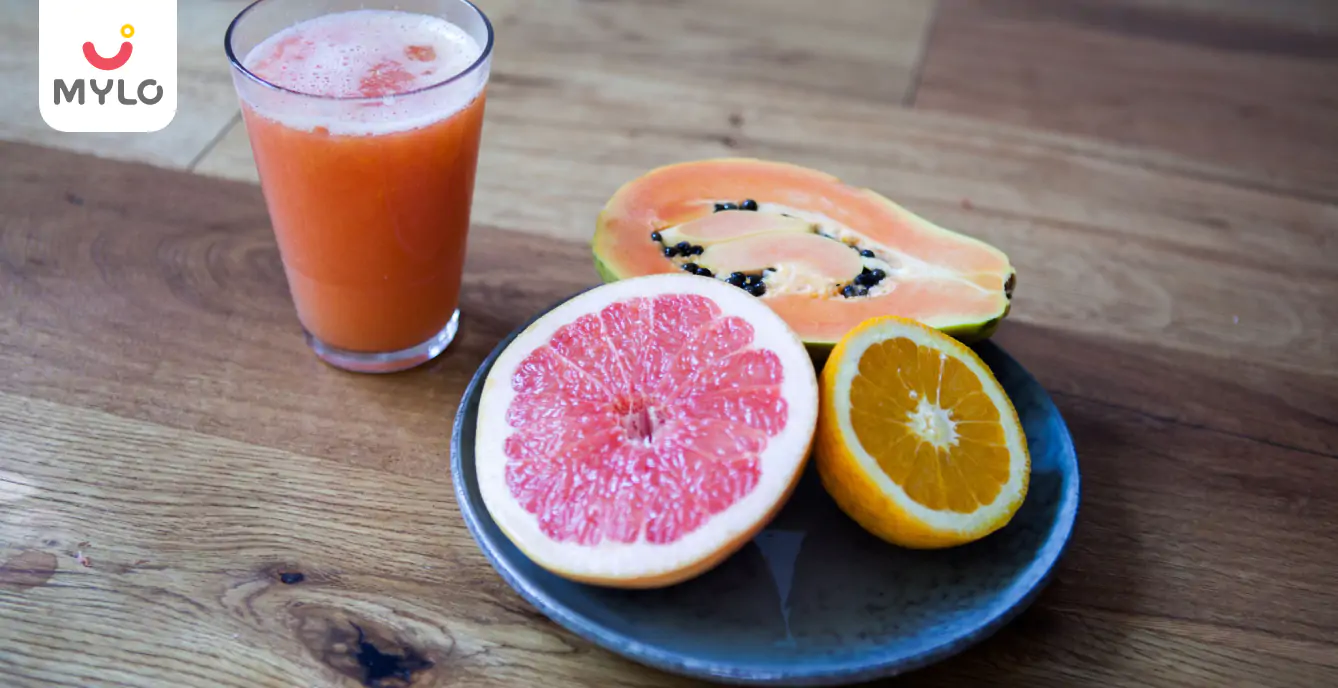
Periods
How to Get Periods Immediately to Avoid Pregnancy?
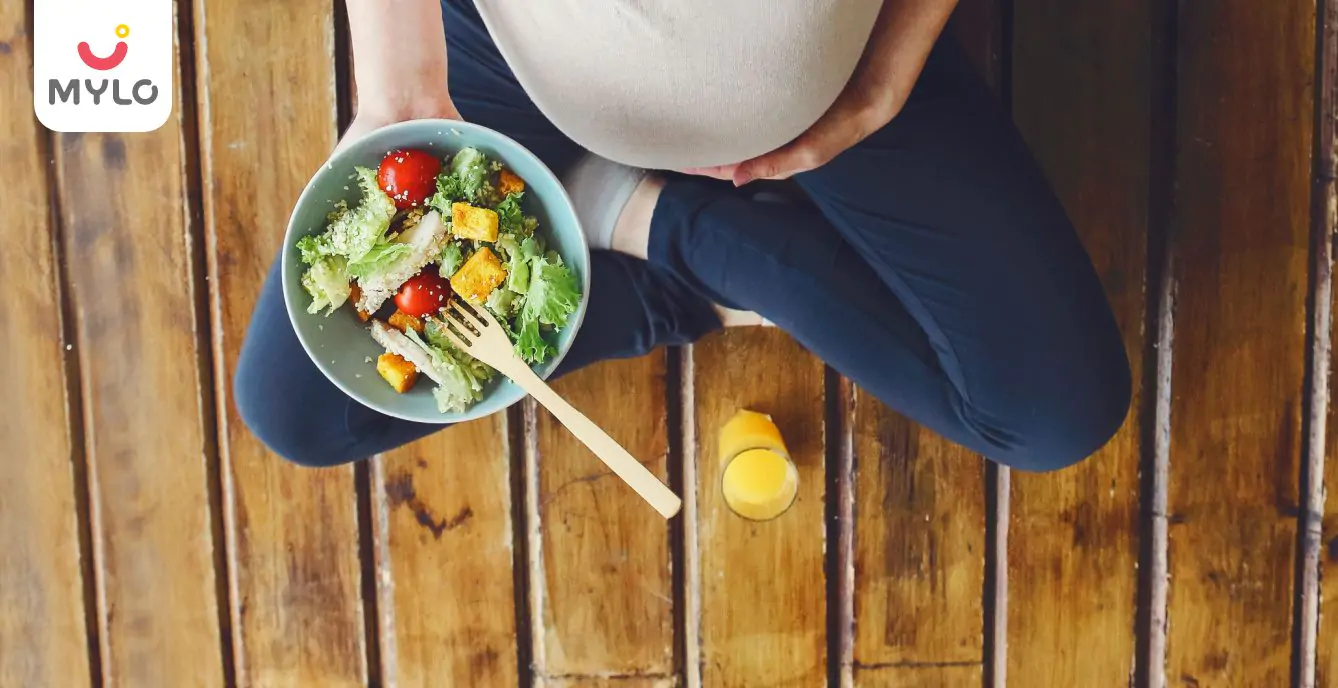
Loss of Appetite During Pregnancy: Causes and Solutions

Caring for your Newborn
How to Increase Newborn Baby Weight: Expert Tips and Tricks

Medications
Fertisure M: The Comprehensive Solution to Male Infertility and Reproductive Health
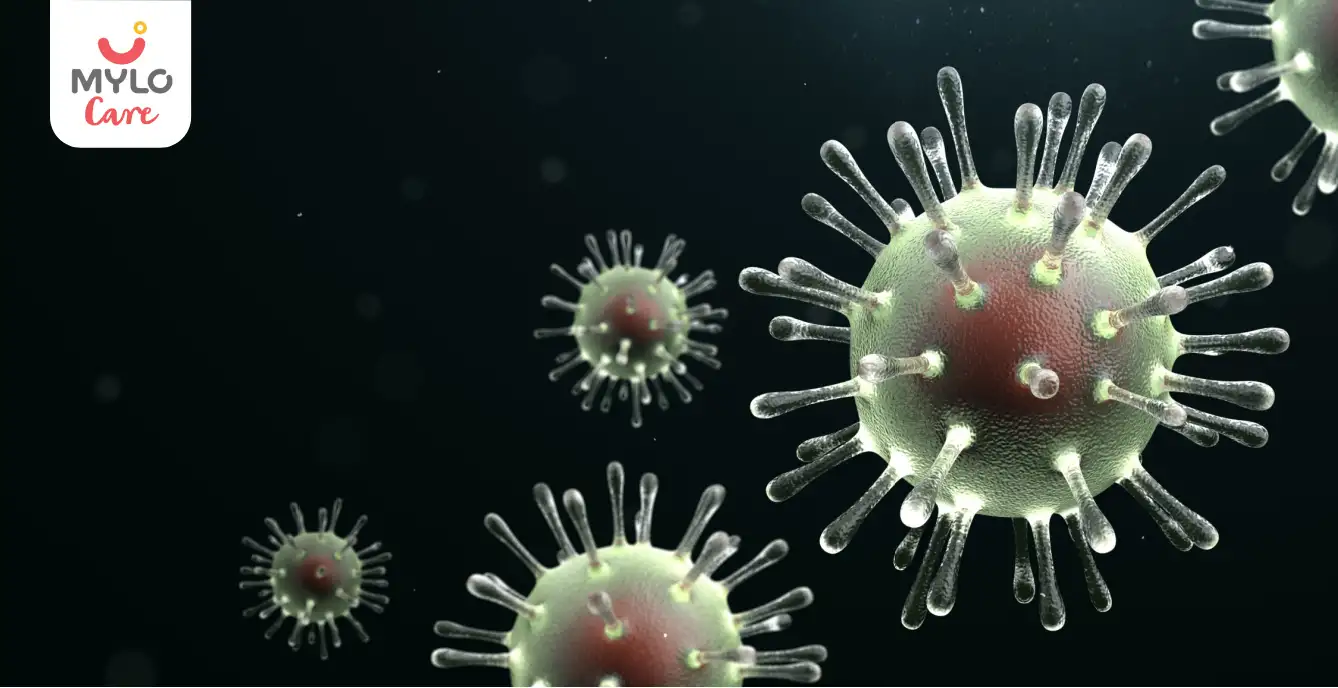
Coronavirus and Pregnancy
All You Need to Know About the New COVID Variant: Pirola
- Endometrial Polyp and Pregnancy: How Uterine Polyps Can Affect Your Chances of Conception
- How to Stop Heavy Bleeding During Periods: Home Remedies (Part 2)
- How Many Times Should You Have Sex to Get Pregnant?
- A Guide to Planning the Perfect Godh Bharai for the Mom-to-Be
- Your Complete Guide to Spinal Anesthesia: From Preparation to Recovery
- Custard Apple During Pregnancy: Benefits & Risks
- 30+ Baby Bump Photos and Ideas for Documenting Your Pregnancy
- 30+ 2nd Pregnancy Photoshoot Ideas for Expecting Parents
- Feeding Tips and Healthy Food Ideas for Your 7-9 Month Old Baby
- Sweet Potato During Pregnancy: Benefits, Risks & Side Effects
- Carrot During Pregnancy: How This Healthy Snack Can Help You and Your Baby
- 30+ Maternity Photoshoot Props: Accessories for Maternity Photoshoot
- Diaper Pants 101: Everything You Need to Know Before You Buy
- Can We Eat Curd During Periods: Understanding the Dairy Dilemma


AWARDS AND RECOGNITION

Mylo wins Forbes D2C Disruptor award

Mylo wins The Economic Times Promising Brands 2022
AS SEEN IN

- Mylo Care: Effective and science-backed personal care and wellness solutions for a joyful you.
- Mylo Baby: Science-backed, gentle and effective personal care & hygiene range for your little one.
- Mylo Community: Trusted and empathetic community of 10mn+ parents and experts.
Product Categories
baby carrier | baby soap | baby wipes | stretch marks cream | baby cream | baby shampoo | baby massage oil | baby hair oil | stretch marks oil | baby body wash | baby powder | baby lotion | diaper rash cream | newborn diapers | teether | baby kajal | baby diapers | cloth diapers |



